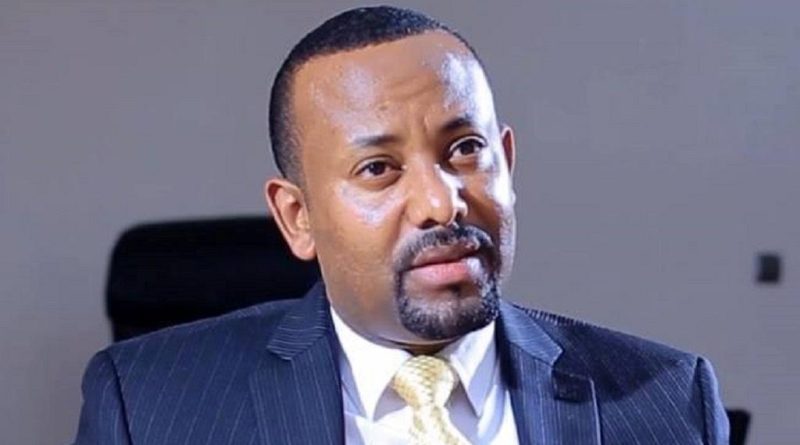Ethiopia’s ruling coalition names new chairman, Ahmed Abiy,set to be PM
ADDIS ABABA, Ethiopia — Ethiopia’s ruling coalition late Tuesday named a chairman set to become the country’s new prime minister amid the latest state of emergency in Africa’s second most populous nation.
The young, outspoken Abiy Ahmed is now poised to take power, as the ruling coalition and its regional affiliates hold all parliament seats. A vote by lawmakers is expected on Wednesday.
The announcement followed months of the most severe anti-government protests in a quarter-century and the surprise decision by Prime Minister Hailemariam Desalegn early this year to release prominent politicians, journalists and others from prison to free up political space.
But Hailemariam later announced his intention to resign and a new state of emergency, the second in less than two years, was imposed in one of Africa’s fastest growing economies. Earlier this week, a number of recently freed politicians and journalists were re-arrested and accused of gathering without authorities’ prior knowledge.
Ethiopians had eagerly awaited news of their new leader for days, with many hoping the development would bring calm to the nation of 100 million people after the months of protests demanding wider freedoms.
Abiy will be the first person from Ethiopia’s largest ethnic group, the Oromo, to hold the post of prime minister since the Ethiopian Peoples’ Revolutionary Democratic Front came to power in 1991. The Oromo people, despite their numbers, have long felt marginalized and have played a main role in the demonstrations.
The new leader, who is in his 40s, is widely seen as a fresh face in the ruling coalition, which long has been dominated by the smaller but more powerful Tigray Peoples Liberation Front. Credited with co- founding the National Intelligence and Security Service, Abiy was elected last month as chair of the Oromo People Democratic Organization, one of the ruling coalition’s four core parties, paving the way for his premiership.
“A fair justice system works only when human rights are respected,” he said during a recent meeting in the Oromia region.
“I believe that Dr. Abiy Ahmed is the answer to Ethiopia’s youths’ questions,” Yonas Alemayehu, an activist in the restive region, told The Associated Press.
This will be the third prime minister since the current ruling coalition came to power close to 30 years ago after overthrowing the Derg military regime by force. The ruling coalition on Tuesday also decided to keep Demeke Mekonnen as deputy prime minister.
The outgoing prime minister, Hailemariam, at times had been labeled as weak and in the shadow of former strongman Meles Zenawi, who died in 2012. Others argued that he successfully continued the late leader’s core policies: economic transformation and repression.
In a 2016 interview with the AP, Hailemariam acknowledged that good governance was in decline in Ethiopia, a key security ally of the United States.
“That is the main reason why people are protesting,” he said at the time. “This is really a positive sign. I have recently apologized in front of the parliament for our mismanagement and lack of responsibility that have generated these dissents. We are now taking measures to address those grievances.”
However, the protests have continued to this day.
Yilikal Getnet, a prominent opposition figure, said the declaration of two separate states of emergency and now the change in leadership showed that the tight grip that ruling elites once had over the public was now deserting them.
“This change in leadership is an indication of how unstable the government is,” Yilikal told the AP. “It has got nothing to do with opening up for democratization or a peaceful transfer of power. It’s time for the ruling party to admit that solving Ethiopia’s current woes are beyond its capacity.”
AP

